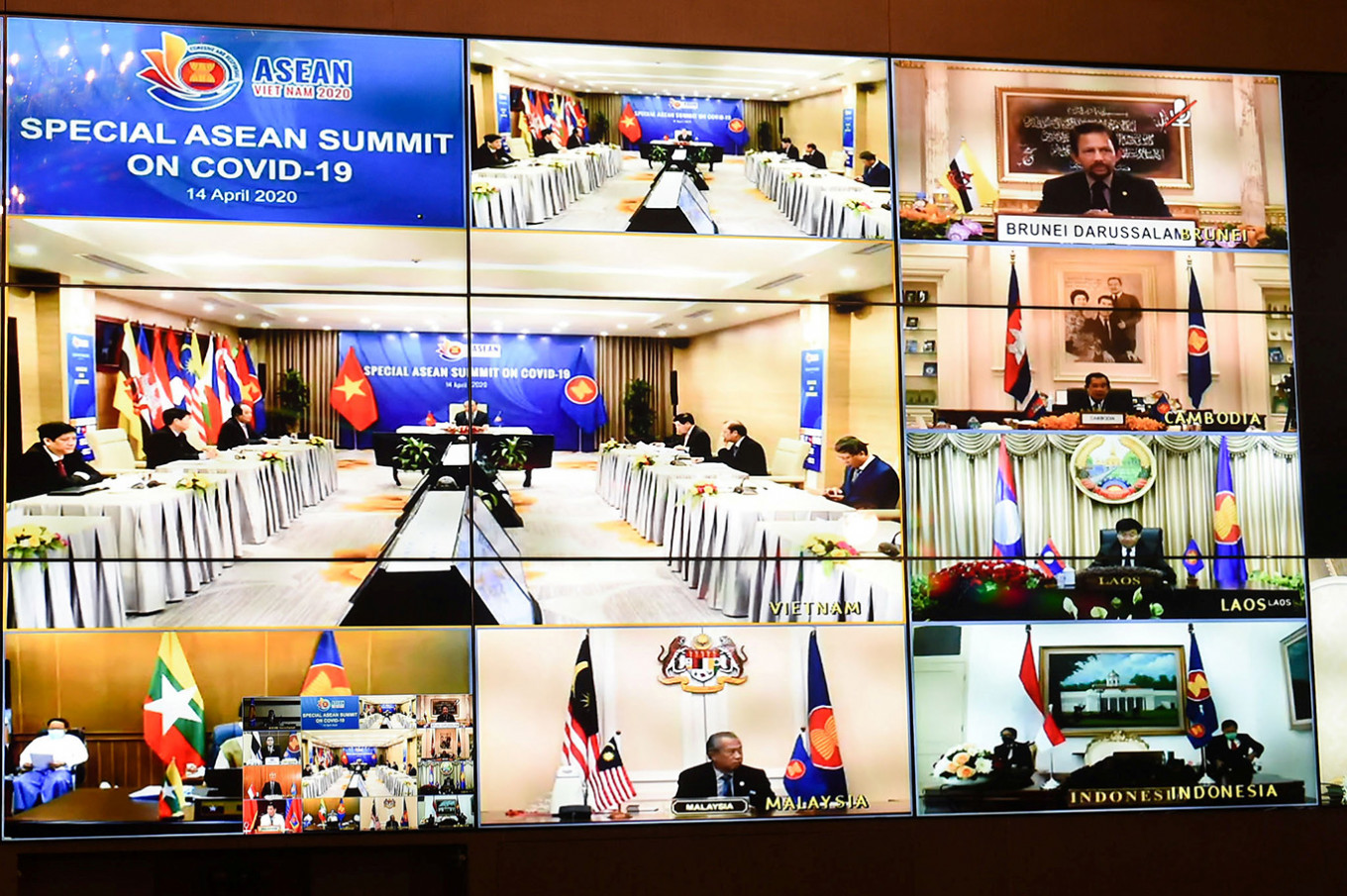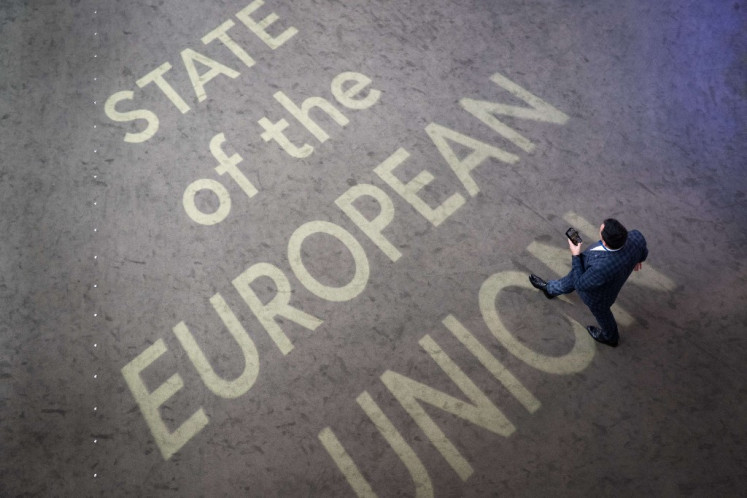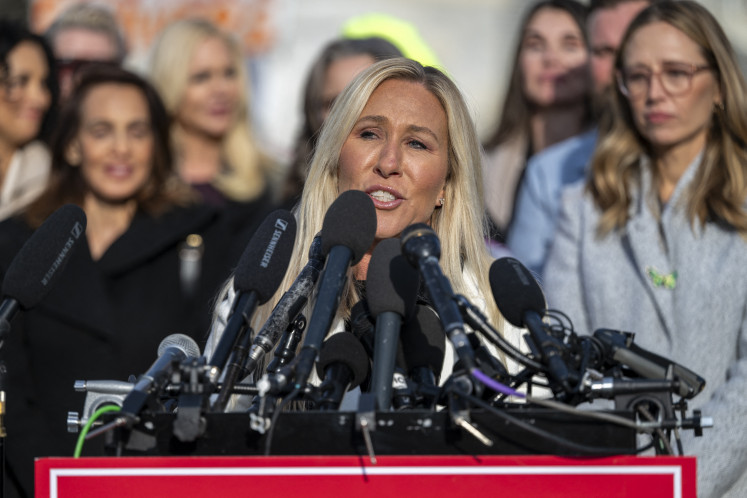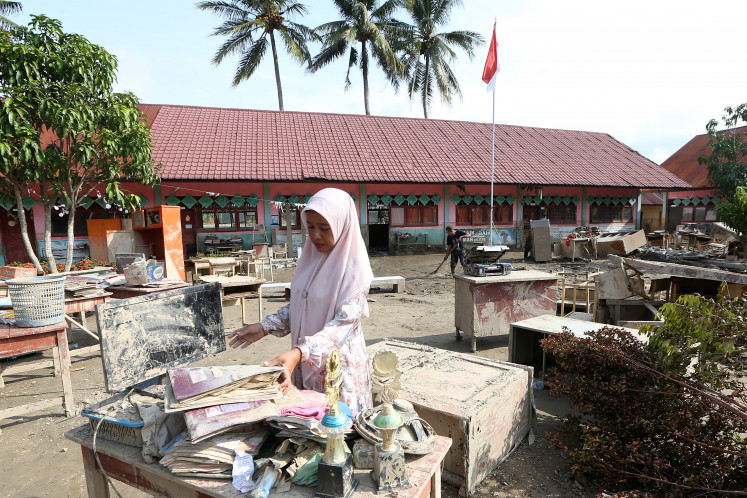Popular Reads
Top Results
Can't find what you're looking for?
View all search resultsPopular Reads
Top Results
Can't find what you're looking for?
View all search resultsCOVID-19: Revisiting vulnerabilities in time of pandemic
In terms of response, COVID-19 is admonishing us time and again that to safeguard the lives and livelihoods of vulnerable groups, social protection systems need to be bolstered in coverage as well as in quality
Change text size
Gift Premium Articles
to Anyone
T
he COVID-19 pandemic has shattered our lives and societies in unprecedented ways. Aside from the health consequences of the coronavirus that are ruinous and fatal, the outbreak has shone a harsh light on its socioeconomic dimensions which are, in no way, less dire and ominous.
While the rampant and very factual narrative of COVID-19 posits that everyone is vulnerable and at risk, a closer look at this heath crisis reveals that the extent of risks and vulnerabilities is more convoluted than it may appear. From health perspectives, the elderly and persons living with pre-existing medical conditions are deemed more susceptible to contract and cope with the virus. Yet, a more entangled but illuminating picture of vulnerabilities is seen when multi-pronged and expanded lenses are worn.
Commencing from the prevention stage, we are advised to eat healthy, to boost our immune system and to work from home. Unfortunately, living healthily, especially during a pandemic, comes with alarming costs. Panic buying and the massive rush to preserve our health have resulted in price spikes in food and other necessities. While unavailability of such items has become a painstaking concern of urban consumers, unaffordability is a daily reality of the urban poor.
In a similar vein, working from home or self-quarantine is not an option for all. Statistical data show that the ability to work from home is strongly correlated with the income percentile and the type of occupation an individual is in. Daily-wage, industrial and informal workers are not able to work from home.
And the implication for many of them is having to choose between exposure to risk or loss of income, which is after all a negative-sum situation. This could aggravate the already volatile or non-existent financial buffers and economic security of the low-income households in immediate and longer terms.
In terms of response, COVID-19 is admonishing us time and again that to safeguard the lives and livelihoods of vulnerable groups, social protection systems need to be bolstered in coverage as well as in quality. The provision of health care, social services and unemployment insurance is being put to the test in light of an exponential surge in cases.
As social protection is relied upon as a measure for poverty reduction, failure to provide such protection will exacerbate poverty and inequalities. In the circumstance whereby people resort to social capital, rather than social protection, to gain access to treatment and care, social cohesion is at heightened risk.
It is evident by now that COVID-19 is not only a health but social and economic crisis that will leave deep scars at all levels. Income losses are expected to exceed US$220 billion in developing countries and human development gains are being drastically reversed. The gender dimension also comes into play as the World Health Organization (WHO) pointed out that women form 70 percent of the health and social service sector and they have disproportionately shouldered the weight of care both professionally and in the private realm.
Yet, the silver lining of the current pandemic depends on how we draw a lesson from it. The crisis can, indeed, be compared to an acute symptom that helps us unearth underlying conditions and possibly cure a chronic illness. It is hoped that all stakeholders are urged to revisit existing structure, systems and resources that encompass health, welfare, economy as well as rights and dignity in order to speedily recover and regain normalcy.
Rapid assessment must be conducted to assist in devising the right remedy for each societal segment, taking into account the intersection of their pre-existing conditions, strengths and vulnerabilities. Most importantly, while social distancing is a current measure against COVID-19, the durable solution for its deleterious ramifications is, in fact, social inclusion.
***
Deputy Secretary-General of ASEAN for ASEAN Socio-Cultural Community (ASCC)










